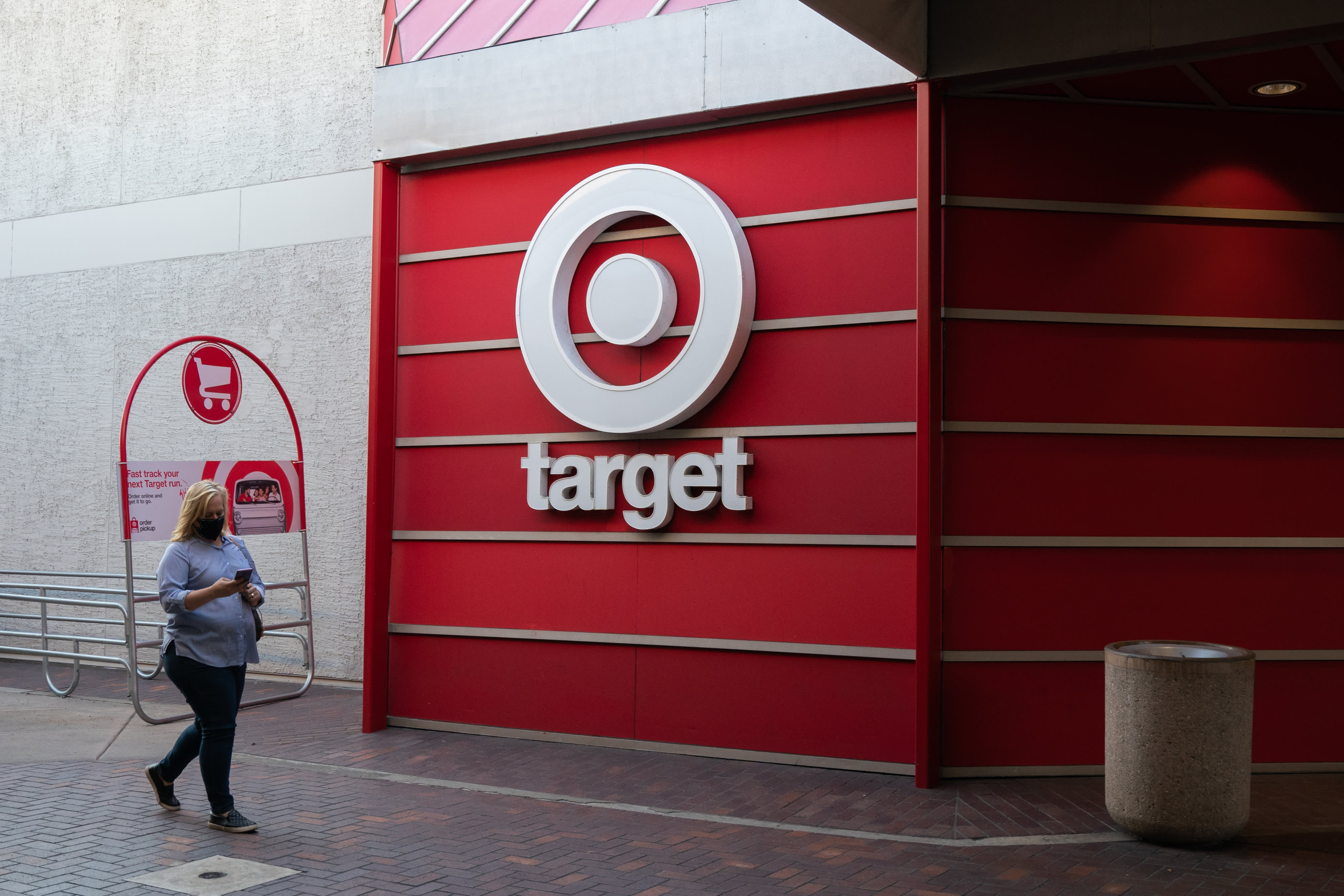
Target said Tuesday that it hopes to build on recent growth by investing about $4 billion annually over the next few years to speed along new stores, remodel existing ones and increase its ability to quickly fulfill online orders.
That represents a step up for the retailer, which invested about $2.65 billion in 2020.
Investors and analysts were left without a key piece of information, however: an outlook for the year. The company declined to provide guidance, saying Covid-19 made it difficult to predict consumer spending.
Shares were down more than 6% Tuesday afternoon, despite Target beating fourth-quarter earnings expectations and reporting strong sales in January.
At a virtual investor day on Tuesday, Target CEO Brian Cornell made the case that the retailer's recent results aren't a pandemic-related blip but the payoff of its long-term business strategy. He pointed to investments and decisions it has made over the past five years such as its growing collection of private-label brands, its partnerships with popular national brands and using its stores as hubs to fulfill online orders.
"Far from being a fluke, this performance is further proof that we built a business model that is working as intended, one that puts Target in a category of its own," Cornell said.
He told investors that continued uncertainty won't distract the company in the coming months.
"I recognize the frustration, not being more precise, particularly on the top line as we think about sales, but I can guarantee you our entire leadership team and every part of this organization is focused on retaining and growing market share, no matter what the variables are we have to face," Cornell said.
Investors are not only spooked by Target's lack of guidance, said Brian Yarbrough, a retail analyst for Edward Jones. They are also concerned about the retailer's warning that it expects lower margins this year. It will juggle fixed costs like paying higher employee wages and fulfilling a growing number of online orders — while potentially having lower sales as pandemic trends wane. Target raised its minimum wage to $15 an hour this summer.
Target also said it expects to have more markdowns of merchandise this year, something that it had little of in 2020 because of high demand and lower inventory. That cuts into profitability, too, Yarbrough said.
New stores, distribution centers
Target's next steps will include opening 30 to 40 new stores each year. Some of these stores will be near college campuses and in major cities such as New York, Los Angeles and Portland. It will remodel about 150 stores by the holiday season and more than 200 per year after that.
It will add two distribution centers this year to support store replenishment near the New Jersey-Delaware border and in the Chicago area, with two more opening the following year.
In the coming year, Target will try out new ways to speed up and improve customer service. It will test tech-enabled ways to restock shelves. And it will test new hubs that sort through packages, freeing up time for employees to pick and pack online orders and helping the company design efficient delivery routes that save time and money.
With the moves, Chief Financial Officer Michael Fiddelke said the retailer will "play offense and lean into the opportunity to build on last year's momentum."
Target has stood out from retail rivals during the pandemic. As shoppers consolidated trips, they spent more money at fewer places where they found a wide range of items. As shoppers prioritized safety, they gravitated toward contactless approaches such as picking up online purchases in the parking lot. As consumers spent more time at home, they directed more of their dollars toward items that helped them work, learn and relax. Those factors have benefited the big-box retailer.
The company's 2020 sales grew by more than $15 billion — greater than its total sales growth over the prior 11 years.
Yarbrough said that statistic, which Target touted, could also be seen as a warning sign. It could mean that the retailer has pulled forward several years of growth and comparable sales could be flat or negative in the quarters ahead.
However, he said, if other retailers continue to flounder and shrink their footprints, Target will have more room to run. It has gained about $9 billion in market share across its categories during the fiscal year.
"They are taking market share," he said. "There's a lot of market share to be had."
"along" - Google News
March 02, 2021 at 10:51PM
https://ift.tt/2PqTPZk
Target to invest $4 billion to speed along new stores and remodels, expand ability to fill online orders - CNBC
"along" - Google News
https://ift.tt/2z4LAdj
https://ift.tt/35rGyU8
Bagikan Berita Ini















0 Response to "Target to invest $4 billion to speed along new stores and remodels, expand ability to fill online orders - CNBC"
Post a Comment